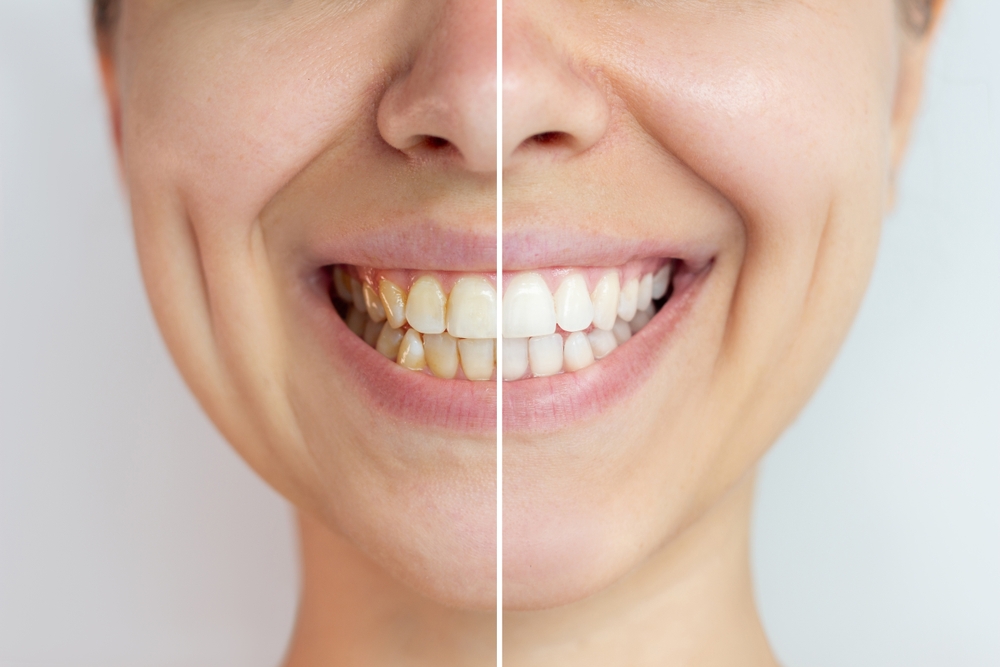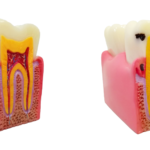How Long Does Teeth Whitening Last
Teeth whitening effects typically last from six months to two years, depending on the method used and individual habits. Regular maintenance can help prolong results.
Teeth whitening has become increasingly popular as people seek brighter smiles. Various options exist, including professional treatments, at-home kits, and natural remedies. Each method offers different results and longevity. Factors such as diet, oral hygiene, and smoking can influence how long the whiteness lasts.
Understanding these elements can help you make informed choices. This guide explores how long teeth whitening lasts and tips to maintain that radiant smile. With the right care, you can enjoy the benefits of a whiter smile for an extended period.
Introduction To Teeth Whitening
Many people love a bright smile. It boosts confidence and makes a great impression. Teeth whitening is a popular choice for many individuals. Bright teeth can enhance your overall appearance.
There are several methods of teeth whitening. These include professional treatments and at-home kits. Professional treatments often provide quicker results. They can last longer than home methods.
At-home kits can be more affordable. They are easy to use and can fit into busy schedules. Over-the-counter products also offer various options. Choices include whitening strips, gels, and toothpaste.
Factors Influencing Whitening Longevity
Teeth whitening treatments vary widely in their effectiveness and longevity. Different types include in-office treatments, at-home kits, and over-the-counter products. In-office treatments usually offer the longest-lasting results.
Individual lifestyle choices greatly affect how long results last. Regular consumption of coffee, tea, or red wine can stain teeth. Smoking also contributes to quicker discoloration.
Maintaining good oral hygiene helps keep teeth white. Brushing twice daily and flossing can extend the effects. Regular dental check-ups are also important for optimal results.
Professional Whitening Vs. At-home Kits
Professional whitening strongly offers quick and effective results. Most procedures take about an hour. Dentists use strong agents that can make teeth several shades lighter. The results can last up to two years with proper care.
Cost is a major factor for many. In-office treatments can be expensive compared to at-home kits. Some people may experience tooth sensitivity after the procedure.
At-home kits are convenient and less costly. They often contain lower concentrations of whitening agents. Results may take longer and can last less than professional treatments. Some kits may cause uneven whitening.
| Method | Pros | Cons |
| Professional Whitening | Quick results, effective, long-lasting | Expensive, possible sensitivity |
| At-Home Kits | Affordable, easy to use | Slower results, uneven whitening |
DIY solutions can be tempting. Many people use products like baking soda or charcoal. These methods may not provide lasting results. Professional treatments are generally more reliable.
The Role Of Diet In Whitening Durability
Foods and beverages can greatly affect teeth whitening results. It’s best to avoid items that can stain your teeth. Coffee, tea, and red wine are common culprits. Colas and dark-colored juices can also cause discoloration. Eating berries and sauces like soy or tomato can lead to stains as well.
To maintain a bright smile, focus on your diet. Drink plenty of water to rinse your mouth. Eating crunchy fruits and vegetables helps scrub teeth naturally. Choose dairy products like cheese to neutralize acids. Regular oral hygiene is key to keeping your teeth white.
Maintaining Results With Oral Hygiene
Daily brushing and flossing are key to maintaining whitening results. Brush your teeth at least twice a day. Use a whitening toothpaste for added effect. Floss daily to remove food particles. This keeps your teeth healthy and bright.
Regular dental check-ups help keep your smile shining. Visit your dentist every six months. They can spot issues early and provide professional cleanings. These visits ensure your teeth stay strong and white.
Staying hydrated is also important. Drink plenty of water to wash away stains. Avoid drinks that can stain your teeth, like coffee and tea. Make healthy choices for your overall oral health.
Touch-up Treatments: When And How Often
Teeth whitening can fade over time. Touch-up treatments help maintain a bright smile. Look for signs that indicate a need for a touch-up.
- Noticeable stains on teeth.
- Dullness in the brightness of your smile.
- Yellowing of previously whitened teeth.
For best results, regular maintenance is important. It is recommended to have a touch-up every 6 to 12 months. This keeps your smile looking fresh and bright. Always consult your dentist for personalized advice.
Common Misconceptions About Teeth Whitening
Many people believe teeth whitening is permanent. This is a common myth. Whitening effects usually last six months to two years. Factors like diet and habits affect how long results last.
Some think whitening strips damage teeth. This is not true. Most products are safe if used correctly. Another belief is that whitening works on all teeth. Not all stains respond the same way.
Many also assume home remedies are as effective as professional treatments. This is often false. Professional treatments usually give better and faster results.
| Myth | Fact |
| Whitening is permanent | Lasts 6 months to 2 years |
| Whitening strips damage teeth | Most are safe if used right |
| All teeth can be whitened | Not all stains respond the same |
| Home remedies are as good | Professional treatments work better |
Expert Tips For Long-lasting Whiteness
Dental professionals suggest that good oral hygiene helps maintain teeth brightness. Brush teeth at least twice daily with a whitening toothpaste. Flossing daily removes plaque between teeth. Regular dental check-ups keep your smile healthy.
Avoid foods and drinks that stain teeth. Coffee, tea, and red wine can reduce whitening effects. Using a straw for these beverages may help. Chewing sugar-free gum also helps keep teeth clean.
Consider touch-up treatments every six months. These can be in the form of whitening strips or gels. Professional treatments may also be a good option. Keeping a whitening kit at home can ensure long-lasting results.
Westwood Gardens Dental Clinic: One of the best dental clinics in Richmond Hill, Ontario
For those in Richmond Hill, Ontario, Westwood Gardens Dental Clinic is a trusted provider of high-quality dental care, including partial dentures. Call them today at 647-905-7303 or email info@westwoodgardens-dental.ca to schedule a consultation. You can also visit their clinic at Unit 18, 8868 Yonge St, Richmond Hill, ON, L4C 1Z8 for a comprehensive assessment and personalized treatment plan.
Frequently Asked Questions
How Long Does Teeth Whitening Last?
Teeth whitening results typically last from six months to two years. The duration depends on factors like personal habits, oral hygiene, and the type of whitening treatment used. Regular touch-ups can help maintain brightness. Avoiding staining foods and drinks can also prolong results.
Can Teeth Whitening Be Permanent?
Teeth whitening is not permanent. Over time, teeth can become stained from food, drinks, and tobacco. Regular maintenance treatments are necessary to keep your smile bright. Good oral hygiene can help extend the longevity of whitening effects.
What Factors Affect Teeth Whitening Duration?
Several factors influence how long teeth whitening lasts. These include the type of whitening product used, individual dietary habits, and oral hygiene practices. Smoking and consuming staining foods can lead to quicker fading. Professional treatments may offer longer-lasting results compared to at-home methods.
How Often Can I Whiten My Teeth?
It’s recommended to wait at least six months between whitening sessions. Overuse of whitening products can damage tooth enamel and cause sensitivity. Consult with your dentist for personalized advice on the best whitening schedule for your teeth. They can recommend effective methods for you.
Conclusion
Teeth whitening results can vary based on individual habits and treatment types. Maintaining good oral hygiene is key to prolonging the effects. Regular touch-ups and avoiding stain-causing foods can help keep your smile bright. Always consult a dental professional for personalized advice on the best whitening options for you.




